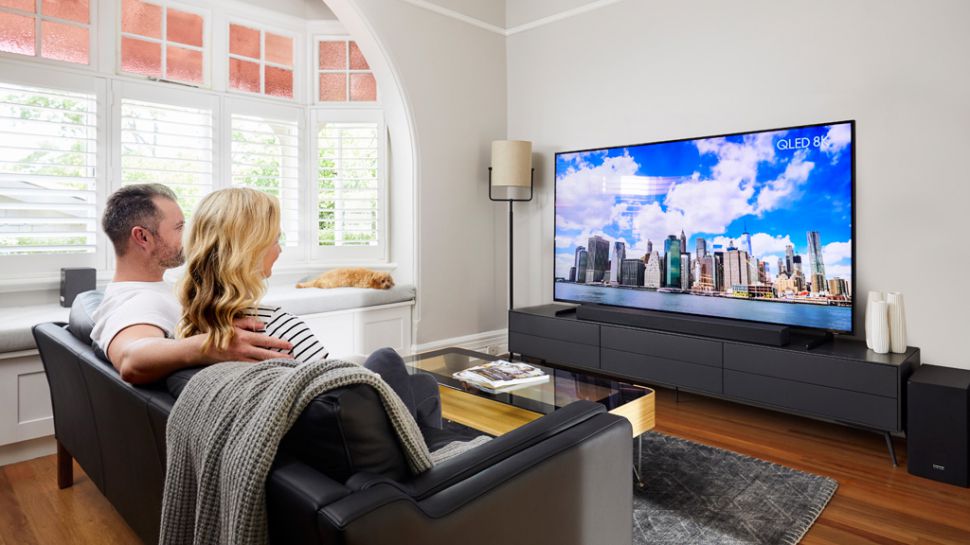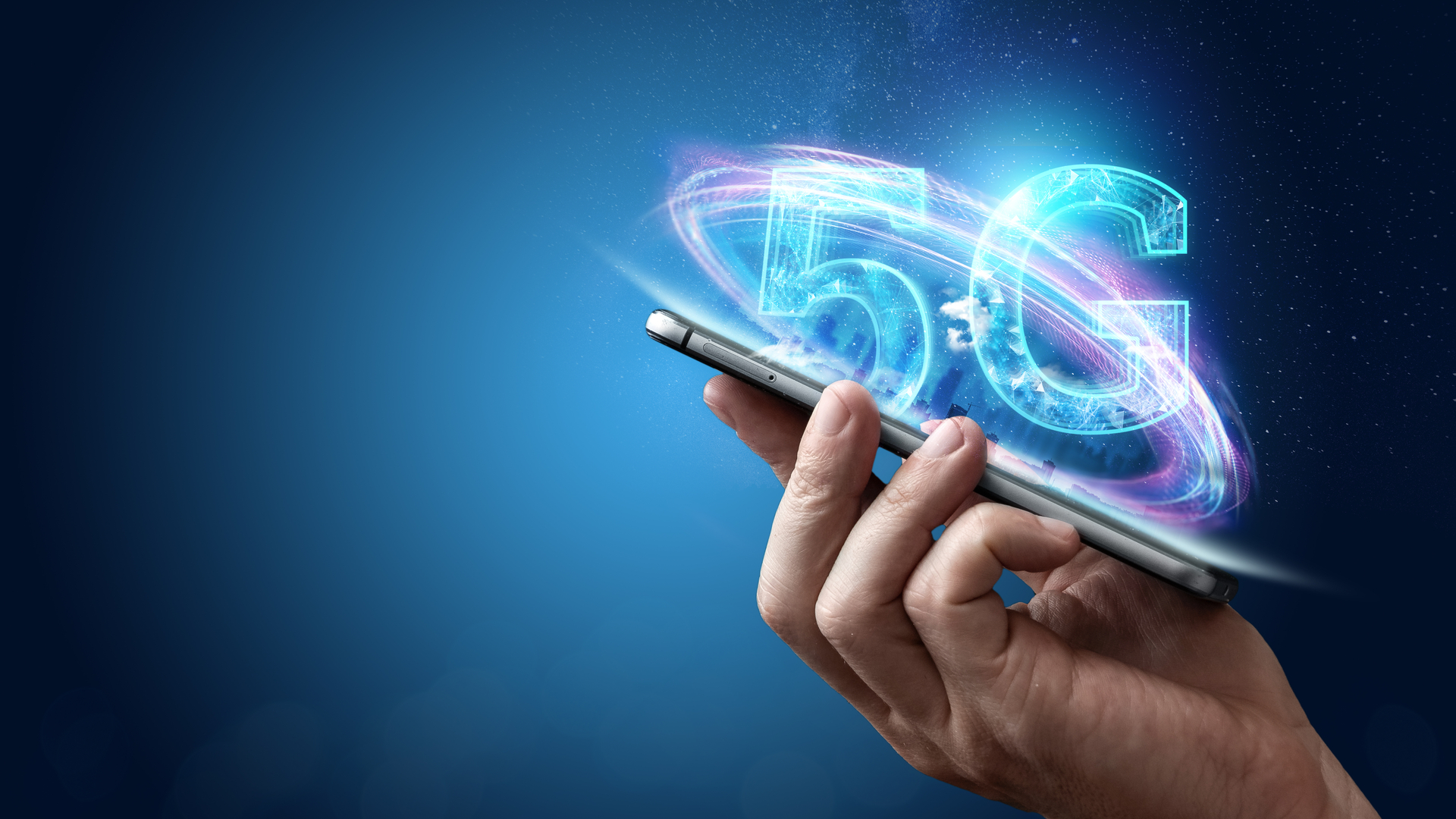How 5G could make your home smarter
5G will make your home smarter, faster, and better

Much has been said about 5G being the future for mobile technology. After all, it's the natural next step after 4G and promises to be substantially faster than anything we've seen before.
We're not just talking about incremental speed boosts either, as it's been suggested that 5G will be 100 times faster than standard 4G. So far, that seems to be the case, but how will it help the average user?
Particularly in the case of the smart home, 5G technology has the potential to revolutionize. That is, if you buy into the hype and speculation that's already rampant while we wait for 5G devices to launch.
The smart home is an environment a growing number of us live in – a household that, besides possessing laptops and smartphones, also contains IoT (Internet of Things) gadgets, from smart speakers like the Amazon Echo to smart lightbulbs and smart locks, right down to all-in-one gadgets like Google Home Hub.
Connected devices are a great way of streamlining how you do things around the home, but it's limited too, thanks to speed restrictions and other issues. Could 5G be the savior that makes the smart home a more appealing proposition to all?
- What is 5G? Everything you need to know

Faster and more efficient smart devices
It's important to know that 5G isn't just faster. It's also vastly more efficient in how it approaches things. It offers lower latency so its response times are speedier and it's also generally smarter.
It can handle more users simultaneously than 4G due to its ability to co-exist alongside other wireless signals without any risk of interference. 5G operates on three different spectrum bands which means it can be as fast as it needs to be, depending on the device that's connecting to it. That frees up capacity for users in busy areas and reduces slowdown at peak times.
Sign up for breaking news, reviews, opinion, top tech deals, and more.
The downside? Higher band spectrums need a clear and direct line of sight to the relevant mast to work as well. That means cities will need to install more 5G masts compared to how 4G was applied in the past. Potentially, we may all need some form of antenna or hub in our homes to get the most from the service.
However, being able to cope with so many different connections at once is a huge advantage for 5G. Wireless connections are consistently under demand from many different sources all at once and often, becoming overloaded with different users and devices is a hefty bottleneck for receiving a high quality service.
Take a look around your home. How many devices already use a wireless connection in some way? It's likely that your TV, games consoles, smartphones, smartwatches, tablets, and laptops all depend on a strong wireless connection to work effectively.
But what about if you add a smart speaker or hub to the mix? Or a smart lightbulb system? Or locks? The list is near never-ending nowadays, with even large appliances like refrigerators or microwaves coming with smart home technology built-in.

During setup, many of these devices create their own Wi-Fi network before switching over to the main home network. Others rely on Bluetooth for the early stages of setup.
In either case, 5G can provide a more consistent form of service, consolidating setup and ensuring that things are easier to get started. It's the kind of thing that can make smart home technology far more accessible and more intelligently designed, thereby encouraging more users to embrace IoT.
Low latency is another way in which 5G could improve smart homes significantly. In the case of security camera systems like Ring and Nest, every millisecond counts. Being able to view what's going on outside your home is useful but only if the response rate means the pictures update rapidly.
A 5G connection means a theoretical response rate of 1 or 2ms compared to a home broadband connection of 10-20ms (at best). Instantly, it makes a security system more attractive to the concerned homeowner.
Overall, 5G could be far superior to a home broadband connection. Faster, theoretically more reliable, and even potentially cheaper – however, there are issues to work through first.

Replacing broadband
There are conflicting reports as to what 5G means for power consumption. While it's more energy-efficient in principle, it also requires more masts to work effectively.
Like with any new technology, it's also likely to have a knock on effect on the battery life of portable devices like 5G smartphones and wearables; it's something that will take time to improve.
There's also the fact that you'll need to replace your current smartphones and gadgets to be able to use 5G. That's less of an issue for smartphones as many of us upgrade regularly, but swapping out smart home systems and infrastructures isn't for the faint hearted – or for anyone counting the pennies.
It's reasonably likely that for a time, 5G will co-exist alongside existing home broadband setups. Base stations are key here with, with homes potentially having a 5G hub alongside a hardwired broadband solution.
That means increased reliability in the home (all-important when even your lighting depends on your internet connection), as well as the eventual step away from the need for a landline.
After all, when did you last make a call from your home phone line? It also gives users time to adapt to 5G, slowly swapping out older devices for new ones that support the new protocol.
While business related, the future can be seen a little through the eyes of Huawei's plans for the InterContinental Shenzhen hotel in China:
Currently in the midst of a makeover, it's set to be the world's first 5G smart hotel. That means continuous 5G coverage for users, but also things like 5G-powered 'welcome robots', cloud gaming, virtual reality rowing machines, and the ability to seamlessly stream 4K movies.
Everyone likes a speedy internet connection and one that enables them to do more. 5G looks set to make smart homes even easier to set up and live amongst than before.– it's just going to take a little time and adaptation to get there.
5G Uncovered, in association with Samsung, brings you everything you need to know about the next wave of connectivity - not just how fast it's going to be, but in just how many ways it's going to change your life. Our 5G Uncovered hub is carefully curated to show everything there is to know about the next generation of connection.
- The best cheap smart home devices and gadget deals this month

Jennifer is a roving tech freelancer with over 10 years experience. Having graduated from Swansea University with a degree in Media and Communication Studies, and later with a diploma from Staffordshire University with a post graduate diploma in Computer Games Design, she's written for a huge number of publications, including T3, FitandWell, Top Ten Reviews, Eurogamer, NME and many more.
Her main areas of interest are all things B2B, smart technology, wearables, speakers, headphones, and anything gaming related, and you'll find her writing everything from product reviews to buying guides and hunting down the latest coupon codes to save you money. In her spare time, she enjoys the cinema, walking, and attempting to train her pet guinea pigs. She is yet to succeed.